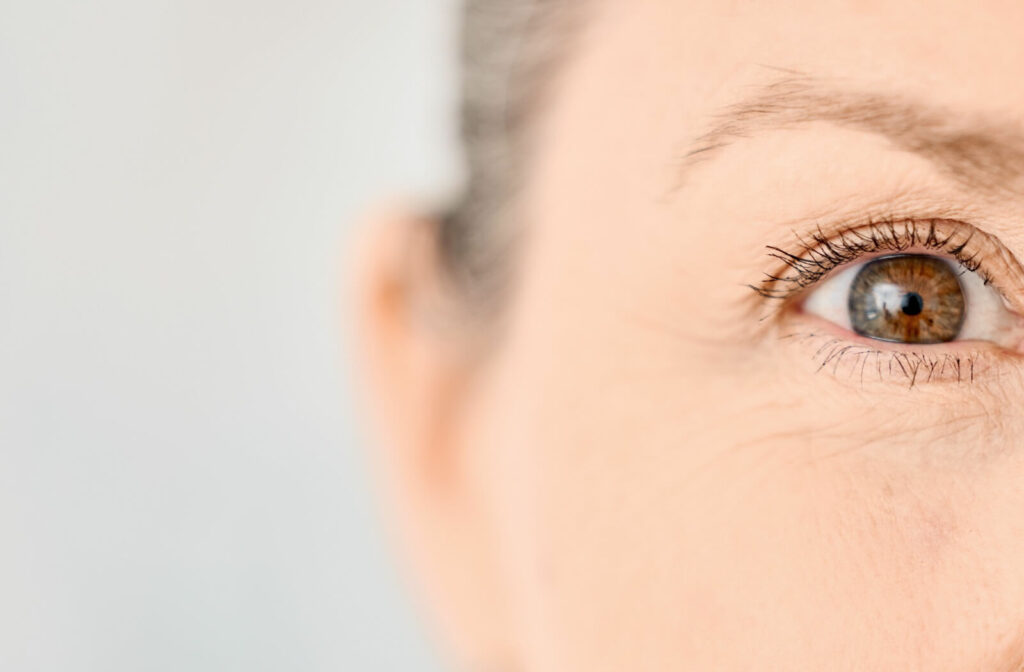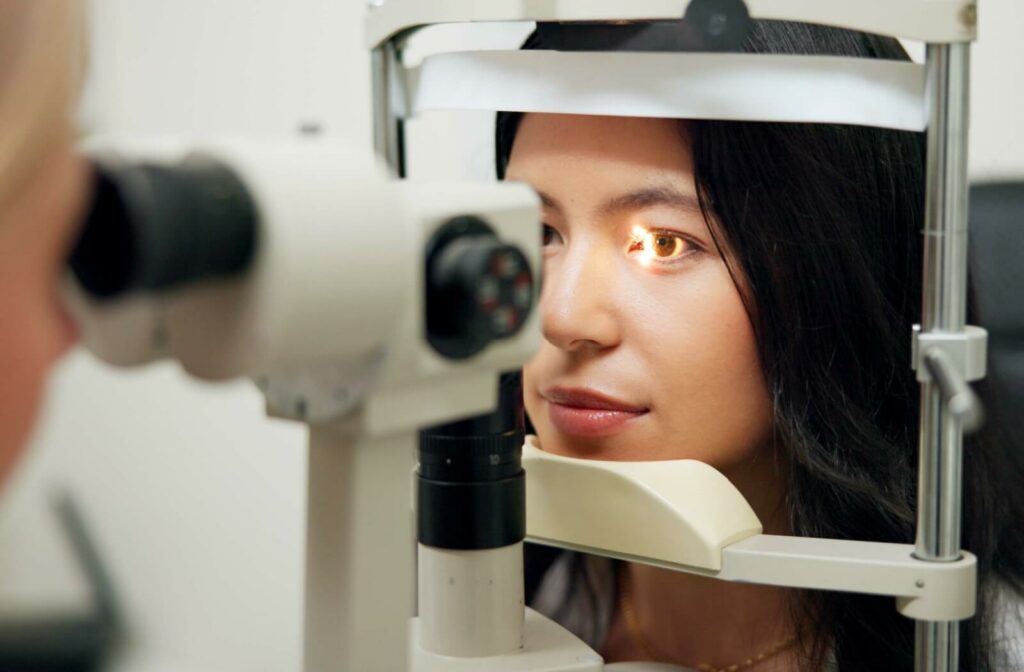The Importance of Regular Eye Exams
The importance of regular eye exams can’t be overstated. Your eyes and optimal vision health are needed for work, school, driving and many everyday activities. Adults between 20 and 64 get their eyes checked every two years, however, if they wear contact lenses, have diabetes, or other health issues, they should go every year. Meanwhile, seniors over 65 need to have an eye exam every year.
It’s important to grasp the significance of eye checkups. A comprehensive eye exam can help with detecting problems early and ensuring that appropriate management or control techniques are applied.
It can be tricky to diagnose an eye disease or condition without a proper, professional eye exam, so it’s important to take a proactive approach when it comes to your eyes.
Caring for Toddlers and Children
While eye exams are recommended for everyone, regardless of age, there are special considerations for toddlers and children. Oftentimes, younger children don’t know the difference between having good vision or bad. They simply look at the world the way they’re used to seeing it, making it harder for parents to determine if something is wrong.
Taking your newborn to the eye doctor isn’t something you might have planned to do. However, doing so can alleviate future concerns about the development of their vision. The Canadian Association of Optometrists recommends that a child pay their first visit to an eye doctor between 6 and 8 months of age.
One example of a condition that appears early in a child’s life is lazy eye, or amblyopia, which can appear in a baby’s first six months. Catching and treating this condition early can often fix or greatly improve it. Treatment can include glasses, contact lenses, vision exercises, patching, or surgery.
As their children grow, parents should watch for signs of other eye conditions like myopia. Between the age of 2 and 5, preschoolers should receive another eye exam. Your child’s optometrist may want to see them for more frequent check-ups.
Watching for Signs & Symptoms in Children
An eye exam can help detect early signs or conditions in toddlers and small children. Some signs or symptoms to look out include:
- Red, itchy or watering eyes
- Sensitivity to light
- One eye that consistently turns in or out
- Squinting, rubbing the eyes, or excessive blinking
- A lack of concentration
- Covering or closing one eye
- Irritability or short attention span
- Holding objects too close
- Avoiding books and television
- Visible frustration or grimacing
Eye Exams for Adults
Most people understand the importance of their vision and overall health. However, when life gets busy, it’s hard to remember to schedule an eye exam. But to preserve healthy eyesight and overall health for years to come, routine eye exams are essential. Important health concerns may go unnoticed if an eye exam is skipped or overlooked.
At least once every two years, adults between the ages of 20 and 64 should undergo a comprehensive eye examination. A yearly examination is recommended for those with diabetes and those who wear contact lenses. Many eye disorders may not show any symptoms at all until they have advanced to the point where they are hard to treat or may have permanent negative effects. Some common eye conditions include:
- Presbyopia: This is a normal condition associated with aging that causes a gradual loss of focus on near objects. Headaches, strained eyes, impaired vision, and a need for additional light are all possible effects of presbyopia.
- Cataracts: A condition in which the transparency of the lens inside the eye gradually fades, resulting in distorted or foggy vision. Surgical excision or updated glasses are available as treatments.
- Diabetic Retinopathy: When blood sugar levels in diabetics are out of control, this condition weakens the small blood vessels at the back of the eye. If untreated, blindness might occur.
- Age-related Macular degeneration: Central vision is affected by deteriorating changes to the back of the eye.
- Glaucoma: This condition frequently causes no symptoms until serious damage has been done. Glaucoma damages the nerve tissue in the back of the eye, which is frequently connected to increased eye pressure.
While none of these conditions are good news, most conditions are treatable and even reversed if detected on time.

Seniors & Eye Exams
The Canadian Association of Optometrists recommends that individuals over 65 should get a comprehensive eye exam every year. By now, you might have already guessed that this is because eye diseases often don’t show signs or symptoms in their early stages.
Annual comprehensive eye exams can detect high blood pressure, diabetes, and cardiovascular disease, in addition to managing visual diseases like cataracts, glaucoma, and macular degeneration. Because we grow more susceptible to all of these conditions as we age, it’s important to get our eyes checked more regularly.
Keep Your Eyes Healthy
While many diseases or conditions might present no signs or symptoms, it’s important to remember to regularly visit your eye doctor. At Total Focus Family Optometry Centre, we’re here to help you ease any concerns you or your family might have. Give us a call and book your appointment today.



